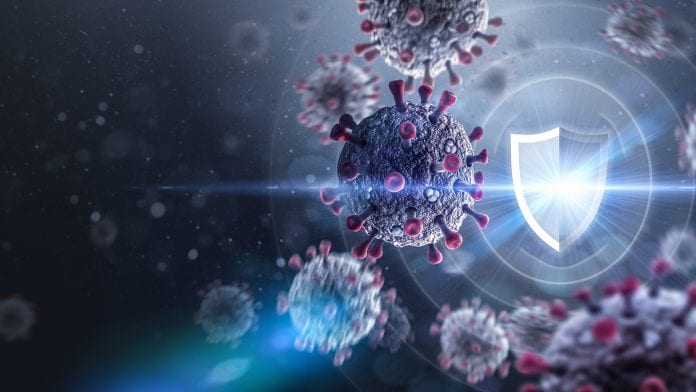
Many people infected with COVID-19 produce immune responses against their body’s own tissues or organs, new research has found.
Funded by the UK Coronavirus Immunology Consortium, the research was led by the University of Birmingham. The study investigated the frequency and types of common autoantibodies produced in 84 individuals who either had severe COVID-19 at the time of testing or in the recovery period, following both severe COVID-19 and those with milder disease, that did not need to attend hospital. These results were compared to a control group of 32 patients who were in intensive care for another reason other than COVID-19.
The results of the study have been published in the journal Clinical & Experimental Immunology.
A variety of unexpected symptoms have been associated with COVID-19, both at the time of infection and for a prolonged period afterwards. The cause of these symptoms is not yet fully understood, but it is a possibility that COVID-19 is triggering an autoimmune process where the immune system is misdirected to attack itself.
SARS-Cov-2 linked to autoimmune disorders
An autoantibody is an antibody (a type of protein) produced by the immune system that is directed against one or more of the individual’s own proteins and can cause autoimmune diseases. Infection can, in some circumstances, lead to autoimmune disease. Early data suggest that SARS-CoV-2 infection can trigger long-term autoimmune complications and there are reports of SARS-CoV-2 infection being associated with a number of autoimmune disorders including Guillain-Barre Syndrome.
Supported by UK Research and Innovation (UKRI) and the National Institute for Health Research (NIHR), the study found higher numbers of autoantibodies in the COVID-19 patients than the control group and that these antibodies lasted up to six months.
Non-COVID patients displayed a diverse pattern of autoantibodies. In contrast, the COVID-19 groups had a more restricted panel of autoantibodies including skin, skeletal muscle and cardiac antibodies. The authors also found that those with more severe COVID-19 were more likely to have an autoantibody in their blood.
Professor Alex Richter, of the University of Birmingham and first author of the study, explained: “The antibodies we identified are similar to those that cause a number of skin, muscle and heart autoimmune diseases.
“We don’t yet know whether these autoantibodies are definitely causing symptoms in patients and whether this is a common phenomenon after lots of infections or just following COVID-19. These questions will be addressed in the next part of our study.”
Senior author Professor David Wraith, of the University of Birmingham, added: “In this detailed study of a range of different tissues, we showed for the first time that COVID-19 infection is linked to production of selective autoantibodies. More work is needed to define whether these antibodies contribute to the long-term consequences of SARS-CoV-2 infection and hence could be targeted for treatment.”









